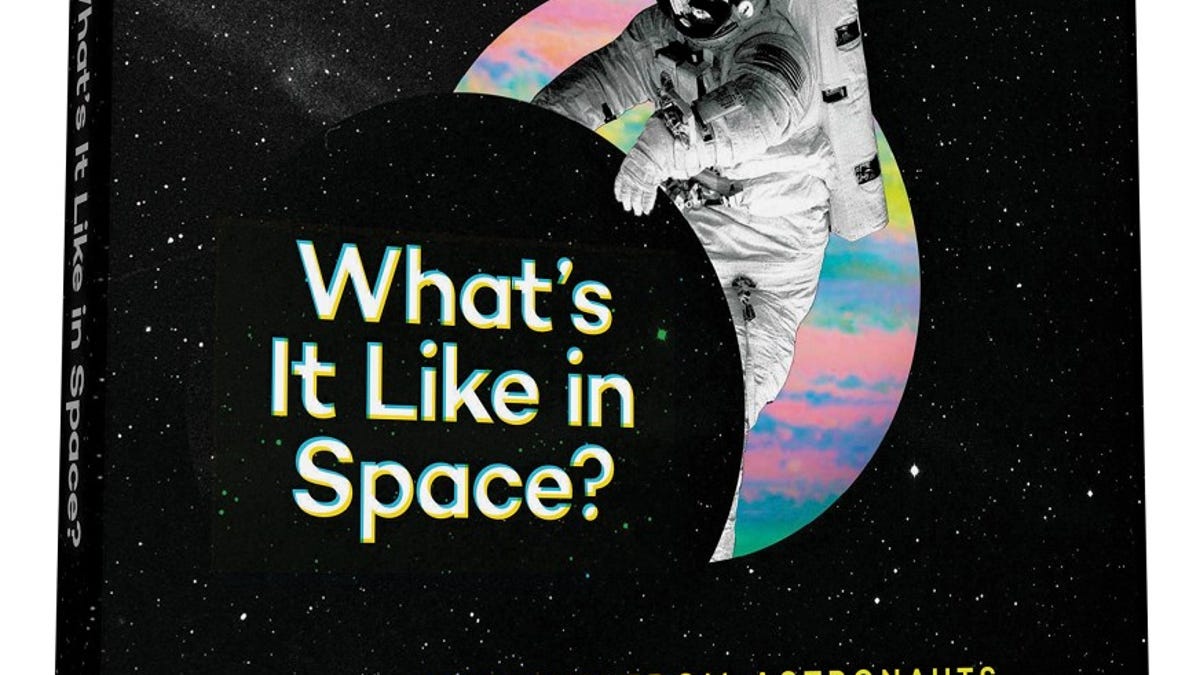Astronaut secrets revealed in new book 'What's It Like In Space?'
Ever wonder what it's like to snooze in zero gravity or why you shouldn't sneeze during a space walk? CNET's Bonnie Burton chats with author Ariel Waldman about the out-of-this-world anecdotes from her new book.
Astronauts tell the best stories. After all, not everyone has the privilege to commute to and from the moon.
In her new book "What's It Like in Space? Stories from Astronauts Who've Been There" author Ariel Waldman interviews dozens of international astronauts about their experiences to find out what it's really like to walk on the moon, live on a space station and sleep among the stars.
Waldman is the founder of Spacehack.org, a directory of ways to participate in space exploration, and also serves as a member of NASA's Innovative Advanced Concepts program, which uses sci-fi concepts to transform future space missions.
Waldman talked to CNET about what she learned while interviewing astronauts for her book.
Q: What inspired you to write "What's It Like in Space?"
Waldman: Going into space is no doubt an epic endeavor, but it often produces these epic stories that we see in media. The reality, as I discovered in my many conversations and interviews with astronauts, is that it's a lot more relatable than you would think. A lot more human -- making mistakes, having awkward moments, trying out silly experiments.
In writing this book, I wanted to tip the balance of space travel being portrayed as surreal to it being far more real, relatable and human.
What was your favorite story from the book?
Waldman: There are a lot of funny ones about solving mysteries. One of the first stories I heard was about the early space shuttle astronauts experiencing very strange headaches when they would travel into space. NASA was quite worried about what was causing these headaches. There were suspicions about it having to do with something odd in the space environment that they hadn't accounted for. It could be intracranial pressure, or the effects of weightlessness, or anything. A lot of time and money was spent into trying to figure out what was causing these mysterious headaches. What someone eventually discovered was that the coffee that was being sent up to space with the astronauts was being freeze-dried, and thus lacking much of its caffeine. The mysterious headaches were actually an effect of caffeine withdrawal.
Why do you think stories from astronauts captivate so many people?
Waldman: There are a lot of unknowns when it comes to the future of humanity, of exploration, of science. How far can humans go? Can we continue to live on Earth sustainably? What can humans achieve as we continue to venture further? The only way to investigate the answers to our enduring questions is by continuing to push the frontier.
Exploration of the unknown takes many forms. We explore the unknown through science fiction, through prototyping, through science, but also through human experience. The human experience of space travel day-by-day chips away at the unknown and simultaneously makes it part of all of our history as a species, as a planet. While being an astronaut is a title ascribed to individuals, traveling into space is transpersonal by its very nature.
What surprised you the most when you wrote this book?
Waldman: I was pleasantly surprised that different astronauts had different takes on the experience of space. I think that's the other issue that comes up with how space is portrayed -- that there is perhaps one way to feel about it. For some astronauts, being in space for a long time was the best experience, providing a sensation of home. For others, the delightful nature of being in space rubbed off as they spent extended periods of time there -- it lost some of its appeal. The answer to 'What's It Like in Space?' entirely depends on the human.
"What's It Like in Space? Stories from Astronauts Who've Been There" from Chronicle Books is currently available online and in bookshops everywhere.


